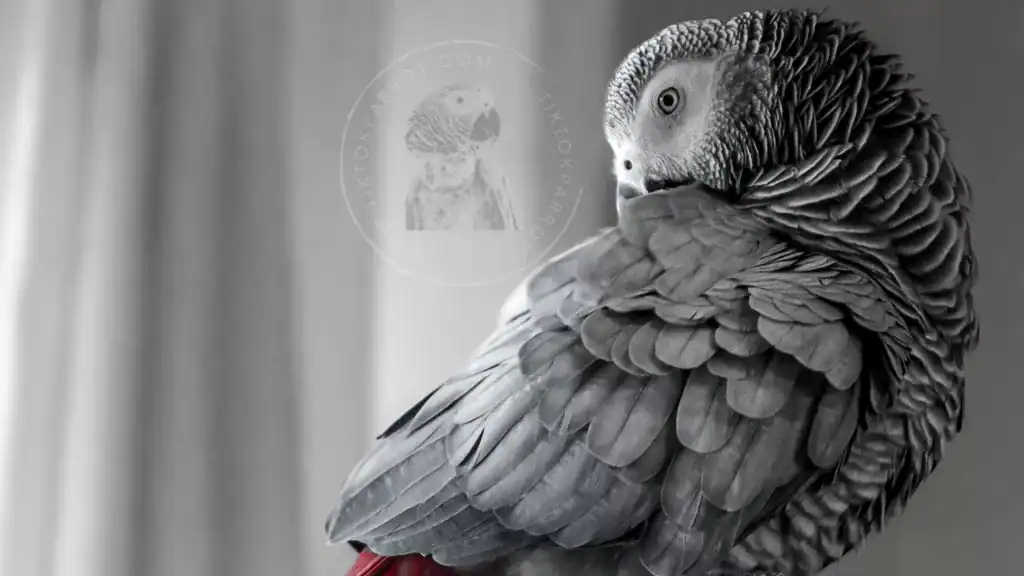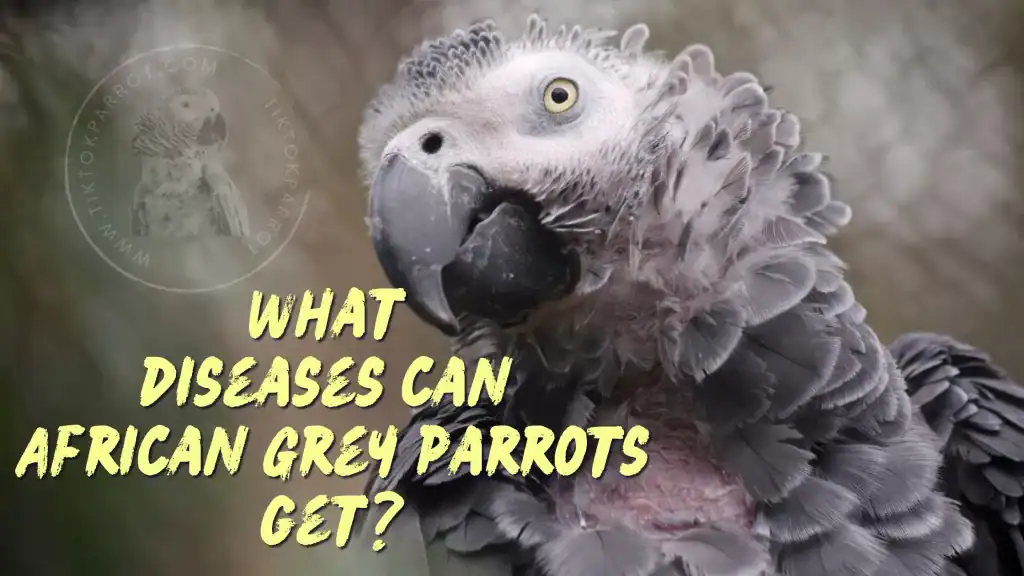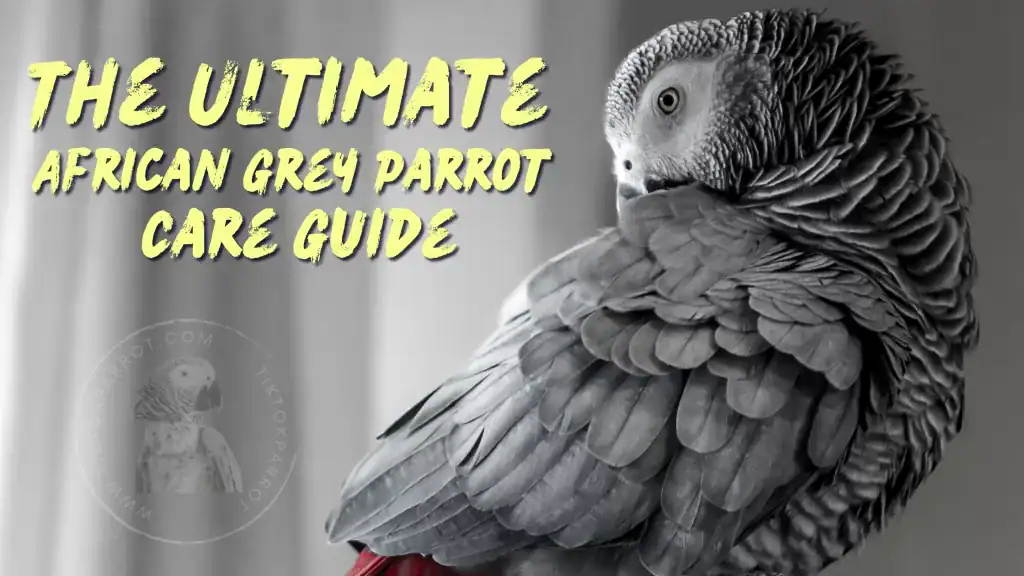African Grey parrots are one of the most intelligent and popular bird species kept as pets. These birds are known for their charismatic personality, stunning beauty, and ability to mimic human speech. However, like all pets, grey parrots are susceptible to various diseases and medical conditions.
Looking for information on common medical disorders and diseases that can affect African grey parrots? Read our quick guide to learn about respiratory diseases, hypocalcemia syndrome, circovirus, nasal blockages, proventricular dilatation disease, and behavioral problems in African Grey parrots. Keep your feathered friend healthy and happy with our expert advice!
In this article, we will discuss some of the most common medical disorders and behavioral problems that African Grey parrots can develop.
Common Medical Disorders
- Behavioral Problems: African grey parrots are highly intelligent and social birds, and they require plenty of interaction and attention to prevent boredom and behavioral problems. Feather-picking, fearfulness, and aggression are some of the most common behavioral issues seen in African Grey parrots.
- Respiratory Diseases: Greys are prone to respiratory diseases, which can be caused by various factors such as exposure to cigarette smoke, mold, or dust. Symptoms of respiratory diseases in African Grey parrots include sneezing, nasal discharge, coughing, and difficulty breathing.
- Hypocalcemia Syndrome: This medical condition occurs due to a calcium deficiency in the bird’s diet, which can result in muscle weakness, seizures, and even death. African Grey parrots require a calcium-rich diet to prevent hypocalcemia syndrome.
- Circovirus (PBFD Virus): PBFD virus is a highly contagious viral infection that affects the bird’s immune system and can result in feather loss, beak deformities, and even death. African Grey parrots are susceptible to PBFD virus, and there is no known cure for this disease.
- Nasal Blockages: Bacterial and fungal infections can cause nasal blockages in African Grey parrots, leading to difficulty breathing and other respiratory problems. Malnutrition can also result in nasal blockages in these birds.
- Proventricular Dilatation Disease (PDD): PDD is a viral infection that affects the bird’s digestive system and can result in weight loss, vomiting, and diarrhea. African Grey parrots are susceptible to PDD, and there is no known cure for this disease.
Prevention and Treatment
Prevention is key when it comes to African grey parrot health. It’s crucial to provide your bird with a balanced and varied diet, a spacious and stimulating environment, regular veterinary check-ups, and plenty of mental and physical stimulation.
If your grey parrot shows signs of illness, such as changes in behavior, appetite, or feather quality, seek veterinary care immediately. Early diagnosis and treatment can help prevent the progression of the disease and improve your bird’s chances of recovery.
As we all know these parrots are prone to various diseases and medical conditions, but with proper care and attention, you can help prevent these issues from arising. Regular veterinary check-ups, a balanced diet, and plenty of interaction and mental stimulation are essential for the health and well-being of your African grey parrot.
The Ultimate African Grey Parrot Care Guide
As an avian enthusiast, you may have found yourself drawn to the African grey Parrot’s stunning beauty and charismatic personality. Native to the dense forests of West and Central Africa, the grey parrot is one of the most intelligent and popular bird species kept as pets.
We understand that providing the best possible care for your grey is crucial to ensure its happiness and well-being. In this comprehensive guide, we’ll cover everything you need to know about caring for an African grey, from their diet and habitat requirements to their behavioral traits and health concerns.
Diet and Nutrition
African Grey parrots are known to be picky eaters, and it’s essential to provide them with a balanced and varied diet. Their diet should consist of high-quality pellets, fresh fruits, and vegetables, nuts, seeds, and occasional treats like whole-grain bread and cooked meat. Fresh water should always be available.
It’s important to note that grey parrots require a calcium-rich diet to prevent health problems such as calcium deficiency and egg binding. Calcium supplements can be added to their diet if necessary, but it’s always best to consult with an avian veterinarian first.
Housing and Environment
Grey Parrots are social birds and thrive in a spacious and stimulating environment. A minimum cage size of 3 feet by 2 feet by 4 feet is recommended, with plenty of perches and toys for mental stimulation. The cage should be placed in a well-lit, draft-free area away from direct sunlight and extreme temperatures.
It’s essential to provide your grey with regular out-of-cage time in a bird-proofed room or area to exercise, play, and interact with you. Supervision is crucial during this time, as African greys are curious and may get into trouble.
Behavior and Training
These parrots are highly intelligent and social birds and require a lot of attention and interaction to prevent boredom and behavioral problems. Positive reinforcement training is an effective way to establish trust and build a strong bond with your grey parrot. It’s essential to start training early and use rewards such as treats, praise, and toys.
African grey parrots are prone to feather-plucking, a behavioral disorder that can result from stress or boredom. Providing plenty of mental and physical stimulation, such as toys, puzzles, and social interaction, can help prevent feather-plucking.
Health Concerns
Greys are generally healthy birds, but they are susceptible to a few health problems, including:
- Psittacosis: A bacterial infection that can cause respiratory problems and digestive issues.
- Beak and Feather Disease: A viral infection that can affect the bird’s beak, feathers, and immune system.
- Aspergillosis: A fungal infection that can cause respiratory problems and neurological symptoms.
- Regular check-ups with an avian veterinarian are crucial to ensure your African Grey Parrot’s health and well-being. Signs of illness to watch for include changes in appetite, behavior, and feather quality.
My Closing Thoughts
Caring for an African grey parrot requires time, effort, and dedication, but the rewards of a happy and healthy bird are well worth it. By providing a balanced diet, a spacious and stimulating environment, positive reinforcement training, and regular veterinary care, you can ensure your African grey parrot lives a long and happy life.
If you found this blog helpful, It would be great if you could share it with your family and friends who might find it useful as well.
You might like to read these as well
Mystery Of African Grey Parrot Proventricular Dilatation Disease (PDD)
Common Health Problems Of African Greys
Mental Illnesses In African Greys And How To Spot Them
Signs Of Illness In An African Grey Parrot
Important Facts About African Grey Health You Need To Know
For more useful content about African grey parrots, you can subscribe my site with your email to get notification upon publishing a new blog, the subscribe box you can see on the right side of this page. Also if you get an alert on your web browser while browsing my site, allow it and that will also give you an alert whenever I publish a new blog.
Stay safe and much love !






